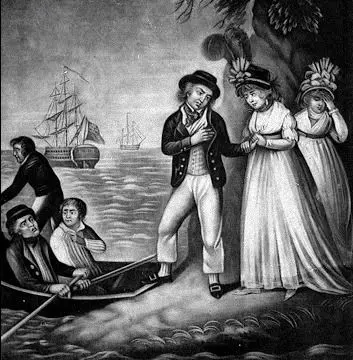
“Fare thee well then, my dearest Nancy,
I no longer can stay,”
Pleasant and Delightful
This song about a sailor’s farewell to his truelove was extremely popular with singers and folk club audiences alike in the early days of the 'Folk Revival'.
It soon became a firm favourite in Leeds where it was popularly associated with the local foursome ‘The Cropper Lads’ , as it was well suited their powerful singing style. The mighty singing of the refrain at the end of each verse, with all the room in unison, was always a real roof-raiser at ‘The Grove’.
During group practices or whilst on route to gigs , the lads always mucked about with the words, ‘the larks they played melodeons’ , and ‘Oh no, my love, farewell, was always, ‘Oh no, my love, sod off’!
I think we all originally learnt the song in 1964 from the Tyneside concertina playing singer Louis Killen, just before he moved to the United States to work with Pete Seeger before joining the Clancy Brothers.
